Have you ever wondered about the difference between coconut milk in a can vs a carton? Look no further, we have been there too! There are multiple forms of coconut and its milk, with plenty of uses and benefits for each. We will delve into the different forms and benefits and how to choose the healthiest and best product for your needs! We also include two simple methods and recipes for making coconut milk at home.
Jump to:
When you are eating healthier and trying new recipes, you will often come across new and varying ingredients. You also may be considering whether the ingredients in the products you currently use are safe and aligned with your clean eating lifestyle. We are here to help!
Coconut is a versatile tropical fruit with many health benefits. The milk made from coconuts is a delicious and creamy treat that is a popular ingredient in multiple recipes or can be enjoyed on its own. Similar to almond milk, oat milk, rice milk, and soy milk, milk from coconuts is a popular alternative to dairy milk.
Can vs Carton
Unlike many of the plant-based milk alternative options, there are a few different types of coconut milk. The most common two versions found in your local grocery store come in a can or carton.
The main differences between canned coconut milk and a carton of coconut milk are the fat content, water content, and additional ingredients. A can of coconut milk has a higher fat content and thicker consistency due to having less water, while a carton of coconut milk has a thinner consistency due to added water.
Because of these key differences, carton coconut milk is typically used in place of cow's milk for drinking or adding to cereal, coffee, tea, and even in pina coladas!
At the same time, the canned version is best used as a cooking ingredient in many sweet and savory dishes, especially in Asian cuisine. This is because of its thick and creamy texture. Additionally, due to its packaging and processing, it tends to have a longer shelf life than carton milk.
You may also notice in the same section that there is a can of coconut cream. This is simply coconut milk with even less water, for the thickest consistency. This is used in specific dishes and in place of heavy cream in recipes. It is also commonly used to make coconut ice cream and coconut yogurt!
To break it down even further, there will be lite coconut milk and full-fat coconut milk.
 Organic Heavy Coconut Cream...Shop on Amazon
Organic Heavy Coconut Cream...Shop on Amazon
 Native Forest Organic Unswe...Shop on Amazon
Native Forest Organic Unswe...Shop on Amazon
 Native Forest Organic Unswe...Shop on Amazon
Native Forest Organic Unswe...Shop on Amazon
 Native Forest Organic Light...Shop on Amazon
Native Forest Organic Light...Shop on Amazon
 365 by Whole Foods Market, ...Shop on Amazon
365 by Whole Foods Market, ...Shop on Amazon
Lite vs Full-Fat Coconut Milk
The main difference between lite coconut milk and full-fat coconut milk is the fat content.
Full-fat coconut milk is made from the grated flesh of mature coconuts and contains a high amount of fat, usually around 17-24% fat content, depending on the brand. The high-fat content gives full-fat coconut milk its rich, creamy texture and flavor.
Lite coconut milk, on the other hand, is made by diluting the full-fat coconut milk with water to reduce the fat content. The fat content of lite coconut milk can vary, but it typically contains around 5-7% fat content. Lite coconut milk has a thinner consistency and a milder flavor compared to full-fat coconut milk.
The reduced fat content of lite coconut milk is geared towards those watching their fat intake, but it also means that it may not work as well in recipes that require the thickness and richness of full-fat coconut milk.
In recipes where coconut milk is used as a substitute for heavy cream, full-fat coconut milk is often preferred to achieve a similar texture and flavor. In recipes where coconut milk is used as a thinner liquid, such as in soups or curries, lite coconut milk may be a better option. Lite-coconut milk in a can is comparable to coconut milk in a carton.
 Thai Kitchen Organic Unswee...Shop on Amazon
Thai Kitchen Organic Unswee...Shop on Amazon
Canned Labels
Each type of coconut milk bought in a package in the store can come with unnecessary added ingredients that can adversely affect health and undo all of the benefits. Be sure to check the ingredients list on the label on the back of your milk.
Sometimes the canned variety will contain sulfites and guar gum. These gums are common additives that have been linked to digestive disorders, inflammation in the gut lining, gas, and bloating. Luckily, there are organic versions that also avoid these ingredients.
In addition, it is important to find a product that is sold in a BPA-free can. Many canned foods have been exposed to BPA, which is a toxic byproduct of plastic. Cans are often lined in plastic coasting which leaches into the food. BPA is a known endocrine disruptor and has links to cancer, metabolic disorders, behavioral disorders, and more. It is known as a forever chemical, as it does not break down in the body or in the environment.
Carton Labels
The milk in a carton often is subjected to high heat for the purposes of pasteurizing. When subjecting it to heat, the nutrients are diminished significantly. The self-protective enzyme that is natural to coconut milk is destroyed along with many vitamins and minerals.
Some companies attempt to replenish these nutrients with synthetic vitamins like Vitamin B, D, E, A, and sometimes calcium carbonate. Other ingredients commonly added are synthetic stabilizers like gellan gum, di- or tri-calcium phosphate, lecithin, ascorbic acid, or "natural flavor".
These shouldn't be necessary but are added to help extend the shelf life, improve consistency, and increase the nutritional value. However, these ingredients aren't always 100% natural and take away from the true quality of the incredible superfood, coconut!
The best option is the make your own coconut milk from home. If that isn't feasible, opt for organic coconut milk from reputable companies.
There may be a slight increase in cost for the organic, BPA-free, gum-free, additive-free milk, but it is worth the investment in your health!
 AROY-D 100% Coconut Milk - ...Shop on Amazon
AROY-D 100% Coconut Milk - ...Shop on Amazon
 Native Forest Organic Unswe...Shop on Amazon
Native Forest Organic Unswe...Shop on Amazon
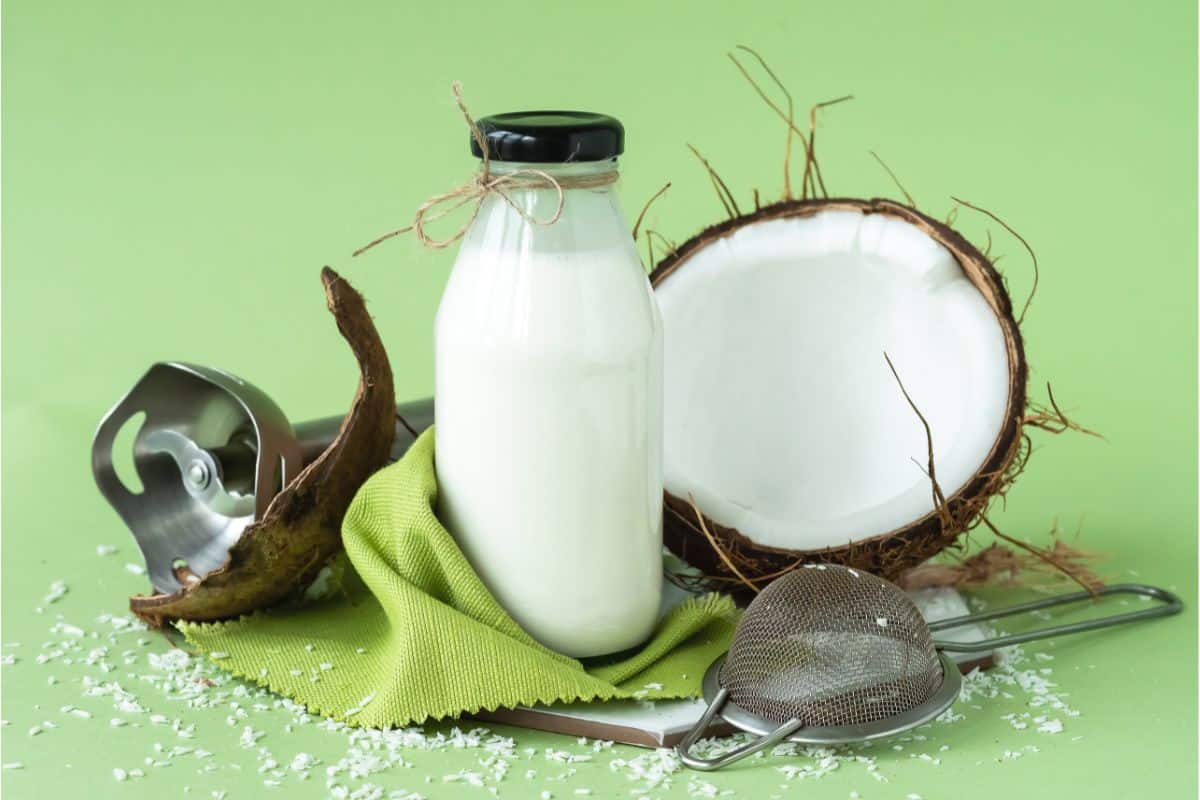
Homemade Coconut Milk Methods
There are two different methods of making homemade coconut milk. One is by using organic shredded coconut. This shredded coconut is typically dehydrated and the method involves simply rehydrating, blending, and straining.
The best option is to use fresh young coconuts and their meat. Some specialty juice bars and markets sell fresh coconut meat that can be used to make milk. Otherwise, you can purchase a whole coconut and crack it open. Making coconut milk with fresh coconuts is a bit more involved, but it is definitely worth the effort for the fresh and authentic taste. Here are the two different methods:
Milk From Shredded Coconut
Ingredients:
- 2 cups of shredded coconut (Be sure to choose organic shredded coconut without any added ingredients)
- 4 cups of hot water
Instructions:
- Place the shredded coconut in a blender or food processor.
- Add hot water to the blender and let it sit for 5-10 minutes to allow the coconut to soak up some water.
- Blend the mixture on high speed for 1-2 minutes, until it becomes creamy and smooth.
- Strain the mixture through a cheesecloth or fine-mesh strainer into a bowl or pitcher.
- Squeeze or press the coconut pulp in the cheesecloth or strainer to extract as much liquid as possible.
- Transfer the coconut milk to a sealed container and store it in the refrigerator for up to 4-5 days.
You can adjust the thickness of your coconut milk by adding more or less water to the blender. If you want thicker milk, use less water, and for thinner milk, use more water.
Milk From Fresh Coconuts
Ingredients:
- 1-2 fresh coconuts, or coconut meat
- 4 cups of hot water
Instructions:
- Crack open the coconut(s) and drain out the water into a separate container. You can do this by drilling a hole in the eyes of the coconut or using a heavy cleaver to chop off the top.
- Use a spoon or knife to scoop out the white coconut flesh from the shell.
- Rinse the coconut flesh with water to remove any remaining shells or debris.
- Cut the coconut flesh into small pieces and place them in a blender or food processor.
- Add hot water to the blender, enough to cover the coconut flesh, and let it sit for 5-10 minutes to allow the coconut to soak up some water.
- Blend the mixture on high speed for 2-3 minutes, until it becomes creamy and smooth.
- Strain the mixture through a cheesecloth or fine-mesh strainer into a bowl or pitcher.
- Squeeze or press the coconut pulp in the cheesecloth or strainer to extract as much liquid as possible.
- Transfer the coconut milk to a sealed container and store it in the refrigerator for up to 4-5 days.
You can repeat the blending and straining process with the leftover coconut pulp and water to extract more milk, but the resulting milk will be thinner than the first batch. The coconut milk may separate and thicken in the fridge, so just give it a good shake or stir before using. For extra sweetness, consider adding date syrup or maple syrup.
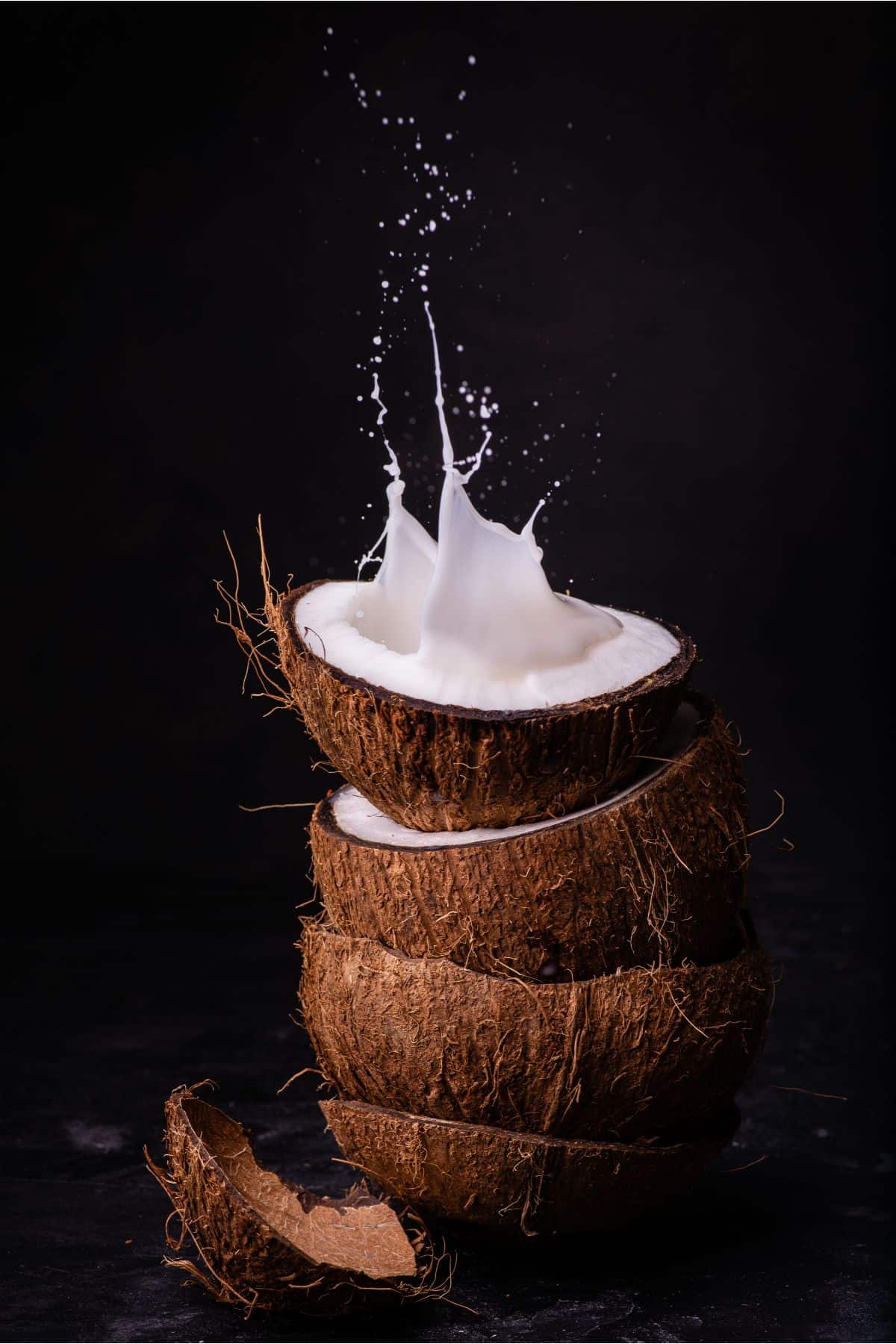
Health Benefits of Coconut Milk
Coconut and coconut milk have several incredible health benefits, including:
- Provides Nutrients: Coconut milk is a good source of vitamins and minerals, including iron, magnesium, potassium, copper, manganese, and folate.
- Promotes Heart Health: Coconut milk contains lauric acid, a type of saturated fat that may help increase levels of HDL (good) cholesterol and lower levels of LDL (bad) cholesterol, potentially reducing the risk of heart disease.
- Aids Digestion: Coconut milk contains medium-chain fatty acids (MCFAs), which are easily absorbed and used by the body for energy. MCFAs have been shown to improve digestion, reduce inflammation in the gut, and help with the absorption of nutrients.
- Boosts Immunity: Lauric acid in coconut milk has antibacterial, antiviral, and antifungal properties that can help boost the immune system and fight off infections.
- Promotes Weight Loss: MCFAs in coconut milk may help increase metabolism and promote fat burning, which may aid in weight loss.
- Helps Maintain Blood Sugar Levels: The MCFAs in coconut milk have been shown to improve insulin sensitivity and help regulate blood sugar levels.
The extraordinary benefits of coconut are not just in the milk and cream. Coconuts have many uses, including coconut aminos, coconut flour, coconut sugar, coconut water, and coconut oil.
More Coconut Uses
- Coconut oil: Coconut oil is a popular cooking oil that is high in medium-chain triglycerides (MCTs). It is also a very stable oil with a high smoke point. The MCTs are quickly metabolized by the body and can be used for energy. Coconut oil is also a great natural moisturizer for the skin and hair. It is also an amazing anti-fungal due to its healing properties.
- Coconut water: Coconut water is a clear liquid found inside young, green coconuts. It is a natural electrolyte that is rich in potassium, magnesium, and calcium. Coconut water is a great post-workout drink for rehydration and replenishing lost electrolytes. We use this as a healthy alternative to electrolyte replacement drinks.
- Coconut flour: Coconut flour is made from dried, ground coconut meat. It is a great gluten-free alternative to wheat flour and is high in fiber, protein, and healthy fats. Coconut flour can be used in baking to make gluten-free bread, muffins, and cakes.
- Coconut sugar: Coconut sugar is made from the sap of the coconut palm tree. It is a natural sweetener that is low on the glycemic index, meaning it has a lower impact on blood sugar levels compared to regular sugar. Coconut sugar can be used in baking and cooking as a healthier alternative to regular sugar.
- Coconut aminos: Coconut aminos is a soy sauce alternative made from the sap of coconut palms. It is a gluten-free and low-sodium condiment that is rich in amino acids and vitamins. Coconut aminos can be used in marinades, dressings, and stir-fry dishes.
 Organic Extra Virgin Coconu...Shop on Amazon
Organic Extra Virgin Coconu...Shop on Amazon
 Viva Naturals Organic Cocon...Shop on Amazon
Viva Naturals Organic Cocon...Shop on Amazon
 Vita Coco Organic Coconut W...Shop on Amazon
Vita Coco Organic Coconut W...Shop on Amazon
 BetterBody Foods Organic Co...Shop on Amazon
BetterBody Foods Organic Co...Shop on Amazon
 Big Tree Farms Organic Coco...Shop on Amazon
Big Tree Farms Organic Coco...Shop on Amazon
These are just a few examples of the incredible coconut products that are available. Coconut products can be found in health food stores and supermarkets, and they can be a great addition to a healthy and balanced diet.
Conclusion
Coconuts are another one of our favorite superfoods rich in health-promoting vitamins, minerals, nutrients, and enzymes. It is also a versatile snack and a wonderful addition to any recipe with its rich and unique flavor and texture.
Its anti-inflammatory properties make it the perfect alternative to many dairy products for a natural and healthy swap in many recipes.
The differences between coconut milk in a can and a carton are few but distinct in their consistency and uses.
Making your own coconut milk at home is best, but when that isn't possible, it's important to know the best products to buy for your health!
We hope this article has armed you with all the information you need to make the best choice!
Do you enjoy coconut milk? Have you made it at home before? We'd love to hear about your experiences in the comments below!
Be well,
Natalie

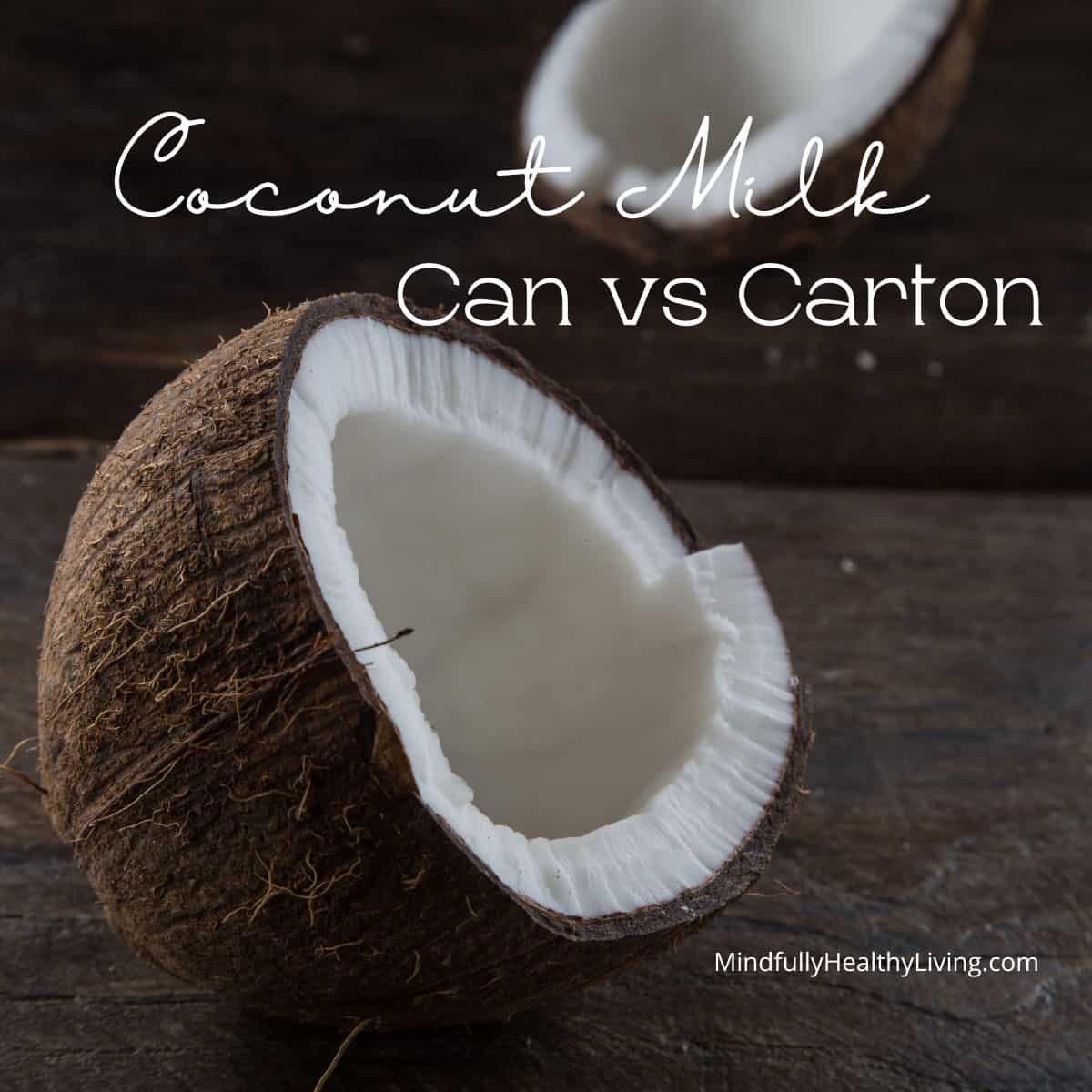
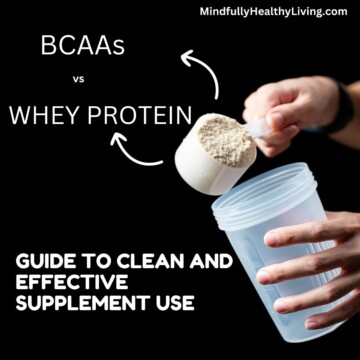

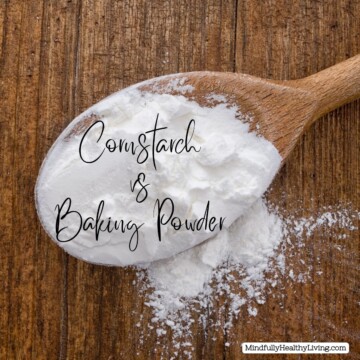
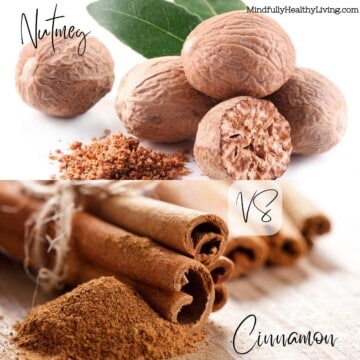
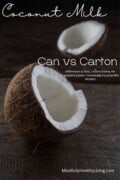
Comments
No Comments